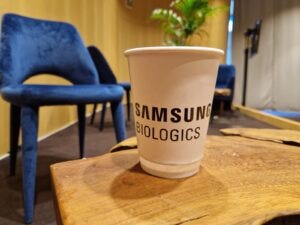Content Spotlight
Podcast: MilliporeSigma says education vital to creating unbreakable chain for sustainability
MilliporeSigma discusses the importance of people, education, and the benefits of embracing discomfort to bolster sustainability efforts.

Samsung Biologics says it is committed to resolving manufacturing deficiencies observed by the US FDA at a recent inspection at its site in Songdo.
An inspection of the site in Incheon, South Korea by the US Food and Drug Administration (FDA) resulted in a Form 483 with six observations.
A Form 483 is issued to management at the conclusion of an inspection when an investigator has observed any conditions that “in their judgment may constitute violations of the Food Drug and Cosmetic (FD&C) Act and related Acts.”

Within the Form, the FDA criticized Samsung Biologics’ written controls procedures, as well as the failure of the CDMO to establish controls over manufacturing operations and process.
The Agency also said the firm failed to perform revalidation of drug product equipment at appropriate intervals, had an inadequate Quality Unit, and had not adequately maintained its facilities. Specifically, the FDA noted a ceiling port dislodged, a broken door leading to the outside within a GMP warehouse, and a deteriorated sealant between floor and wall in one of the plant’s preparation rooms.
“We have developed and implemented a comprehensive plan to address the observations as quickly as possible and will continue to communicate with the FDA and our clients on our remediation efforts,” Samsung Biologics said in a statement sent to this publication.
“Most importantly, there’s no impact on the quality of our products, or the safety of patients. We take compliance very seriously and will Ifdo everything we can to address any concerns as quickly as possible.”
Since its conception in 2011, Samsung Biologics has grown considerably and now has four manufacturing facilities operating in Songdo, with a fifth under construction.
Samsung Biologis’ first plant has 30,000 L of capacity from six 5,000 L tanks while the second offers 150,000 L of capacity through 10 times 15,000 L fermenters (plus a further two 1,000 L stainless steel tanks for clinical manufacture). The third facility consists of 180,000 L of capacity from 12 times 15,000 L tanks, plus another two 1,000 L tanks. The fourth ‘super plant’ adds another 240,000 L of capacity.
While the CDMO would not comment on which facility received the 483, the fact the FDA’s first observation found that Samsung Biologics’ Manufacturing Scientific Analytical Technology (MSAT) used in support of application submission data has had inadequate controls in assurance of data integrity since 2013 would indicate the inspection was at plant number one.
In other Samsung Biologics news this week, the CDMO has inked a deal to develop and manufacture products for European venture capital firm Kurma Partners’s portfolio companies.
You May Also Like